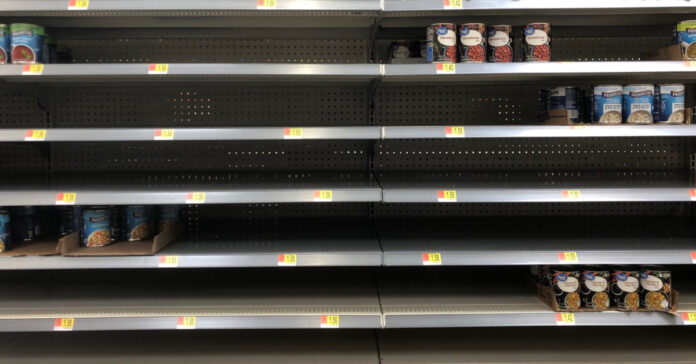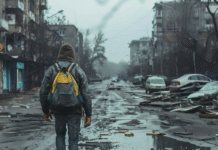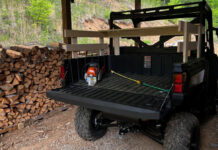
As preppers, we are told the three most important things we need are food, water and shelter. Most of us have shelter and many of us can find water, which may even fall from the air. Food, however, is harder for most of us to source. When the shelves are empty, few people have the ability to grow, hunt, catch, or find their own food. That’s why stockpiling food is the first thing I tell new preppers to do.
An accessible, plentiful, reasonably inexpensive food supply is one of the pillars of today’s society. Take that away, and life becomes tougher, people become meaner, and our society begins to collapse.
Nine Meals from Anarchy
In 1906, Alfred Henry Lewis said, “There are only nine meals between mankind and anarchy.” The point is that being hungry, and seeing one’s children go hungry, will drive a man to riot in the street, loot the stores, fight, kill, and do whatever it takes to obtain food. For some, feeding their family may mean waiting in line at a soup kitchen or food pantry. For others, it may mean taking a dirty or dangerous job. It may drive others to crime, from theft to kidnapping.
Hunger is why women in Venezuela became prostitutes during their collapse. It led peasants in North Korea to eat grass when they had no other food. Hunger drives people eat zoo animals in failing societies. It’s why the Donner party succumbed to cannibalism. Throughout history, hunger and desperation have driven people to banditry, pillaging, and murder. Clearly, our definition of “whatever it takes” changes when we go from well-fed to desperately hungry.
Food as a Weapon
Using food as a weapon goes back millennia. Think invading armies conducting a siege to starve out people living in walled cities and forts. The idea of food as a weapon was modernized as part of Henry Kissinger’s plan for controlling third world countries, when the U.S. government wielded food aid as both a stick and a carrot. Today, the global elite are starting to use food scarcity as a way to control people.
Using food shortages on a global scale is a dangerous approach because it turns that weapon hurts everyone, not just a few targeted countries. Because food is a global commodity, the coming food scarcity will affect the entire world, but it will be worse for countries that are net importers. Rising food costs will be felt most in third world countries where food accounts for a significant portion of the average person’s wages. In developed countries, it will affect the poor more than the rich.
Food, or lack thereof, can be a two-edged sword. It has played a key role in fomenting revolution, from Marie Antoinette letting them eat cake to the Arab Spring. Revolution can also lead to starvation, as it did in China under Mao. The elites will need to be very careful how they use this weapon.
How it Starts
Today, the threat to our food supply is multifaceted.
In the beginning there was a novel coronavirus which upset the carefully balanced global system for growing or raising, harvesting, transporting, processing, producing, and delivering food to the people. Whether the virus was intended as a way to break the supply chain or that was a lucky coincidence they took advantage of does not matter; the results are the same.
Then came the bad weather. Drought. Hail. High heat. Surprise frosts. These are things farmers deal with every year, but in the hands of the propagandists, they become excuses, reasons to blame someone other than those in charge. 2021 is a banner year for these excuses, both here and in Brazil, two countries that are leading food exporters. The propaganda is planting the seeds so that people expect food shortages, thus minimizing the threat it will lead to people marching in the street with pitchforks and torches.
Most recently, a shortage of fertilizer was added to the mix. China, for example, has stopped exporting potash. Producing ammonia and nitrogen fertilizer is stumbling to a halt in Europe because high natural gas prices make it too expensive to produce. This will mean less productive harvests if fertilizer is not used or more expensive food if it is.
Adding Straw to the Camel’s Back
It’s important to note that the natural gas shortage plaguing Europe could be quickly alleviated by approving Nord Stream 2, the gas pipeline that runs from Russia to Europe, passing under the Baltic Sea. Russia has all but said it will not increase gas shipments to Europe until Nord Stream 2 is approved. So the shortage is not only manmade but intentional.
Likewise, the decision by China to stop exporting potash (and magnesium and other commodities) is exactly that: a decision. It too is an intentional shortage. Added to the problems caused by COVID-19, which were also intentional acts, and you see that the impending food shortage is the fault of politicians, although they are trying to blame Mother Nature.
The decision by governments to fire people who refuse to take the vaccine is also an intentional decision that could be easily reversed. Some companies are doing so, while others prefer to kowtow to the Biden Administration, even as it undercuts their ability to do business and best serve their stockholders.
The broader disruption to the supply chain, which slows the delivery of equipment and parts of equipment used to raise, harvest and process food, also hurts the food supply. The duration of this problem could be shortened by relaxing regulations. Costs associated with importing certain foods could be reduced by lifting taxes and sanctions. More decisions that could be made to minimize the danger of a food shortage.
For example, U.S. regulators suddenly made shipping fish from Alaska to processors in the U.S. tremendously more expensive. Regulators in China suddenly stopped soybean and feed production because it was too energy consuming. In the UK, there are not enough butchers to harvest and process the meat because of Brexit. The list of stupid reasons goes on.
Hints of What is to Come
At the same time, we are being told that food shortages and empty shelves are nothing to worry about. I’ve seen grocers saying things like “You may not find the exact product you want, but there will be substitutes,” so often that it has to be a talking point. They are working to downplay shortages while getting you used to them, so you are less alarmed when they grow worse. They will call empty shelves the “new normal” but what they mean is “This is what we want.”
When he was President, Barack Obama famously said “those jobs aren’t coming back,” and the media agreed. President Trump proved him wrong, bringing back 479,000 manufacturing jobs during his first 26 months in office and dramatically increasing employment and the economy. We are seeing history repeat itself as an Obama-like socialist-leaning administration cannot bring back jobs, lower gas prices, or resolve the food shortage. I dare say a president with a capitalist and free market approach would see better results.
Again, many of the decisions negatively affecting pricing and production are being made intentionally because the powers that be want those results. They want them so they can control us, using food as a weapon. They want them so they can break our society, destroying the American Exceptionalism we once enjoyed and felt we deserved.
What this Means for Preppers
As preppers, we can prepare for a few months of rising food prices and a couple years of food shortages, but few preppers can prepare for hyperinflation or a decade of food shortages. To do so, you would need to raise your own food on a large scale, not just stockpile it.
Thankfully, I don’t think we have to prepare for a decade. I expect the rising rate of inflation and the sinking Biden approval rating will combine to produce a Republican Senate and House after the 2022 election. If Democrats continue down this path, it should also result in a Republican president in 2024. That could slow and then reverse these trends.
Your best bet is to stock food, concentrating on staple items that can add calories and allow you to produce home-cooked meals inexpensively. I’m talking rice and beans, flour or wheat, corn, oatmeal, and pasta. Porridge, fresh bread, and rice and beans have kept peasants alive for millennia; they can do the same for you.
In addition, look at my prior advice to start sourcing food from local farmers, so transportation disruptions are minimized and there are fewer supply chain links between you and your food. If you have the ability to grow your own fruit and vegetables or raise your own livestock, get started now because it takes time and you will make mistakes. Every mouthful you can produce is one you do not have to buy.
Stay tuned, we’ll be looking at the man-made energy crisis in Part Three.







Great article!
Comments are closed.